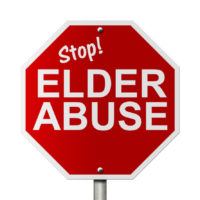WHEN A LOVED ONE SUFFERS ABUSE OR NEGLECT IN A NURSING HOME

The facility may be called a nursing home, convalescent home, rest home, or elder care facility. Whichever it is, the owners of that facility can be held legally responsible when harm is caused to a patient or resident. There are actually different categories of harm, any one of which can be grounds for filing a personal injury lawsuit.
Nursing home neglect
Unlike abuse, neglect is not done out of specific intent to harm an elder or a patient. Nonetheless, substandard care can result in harm. There are four types of nursing home neglect, the Nursing Home Abuse Guide explains:
- Social neglect – the elderly person is ignored, left alone, or snapped at by staff members
- Personal hygiene neglect – the elderly person doesn’t receive adequate help with laundry, bathing, brushing teeth, etc.
- Basic needs neglect – the nursing home fails to provide a safe, clean environment and reasonable food and water.
- Medical neglect – not enough attention, prevention, and medication is offered for bed sores, infections, diabetes, mobility, etc.
Nursing home abuse
Abuse is harm done intentionally, sometimes by overstressed staff members of a care facility, sometimes by other patients. The abuse may fall into one of three categories:
- Physical abuse – this may include physical attacks, confinement, or misuse of drugs.
- Emotional abuse – this may include degrading, threatening, manipulating, or ignoring.
- Sexual abuse – the victim may be sleeping, ill, or too weak to give consent. (The abuser may be a staff member, another resident, a visitor, or even a family member.)
Delegation of duty to care
When family members don’t have the resources or skills to address the needs of a relative, they delegate that care to a skilled nursing facility. They trust the facility to care for their loved one, explains the Nursing Home Abuse Guide. When that trust is broken the individual and the family members may have a right to sue to recover damages, if it is found that the facility breached the trust placed in it, either through negligence or abuse.
More than 40% of nursing home residents have reported abuse, the Guide reports. More than 90% report that they or another resident have been neglected!
But many, many more incidents of abuse and neglect go unreported, the Guide observes. Why is that?
- Elderly residents are unable to communicate effectively.
- Residents and even their family members fear retaliation from staff members.
At Ramey & Hailey Law, we understand that many people come to us only after having finally realized that their elderly loved one had been a victim for a long time, suffering in silence and fear. For this reason, we are dedicated to offering not just legal representation, but compassionate, personalized counsel. We know that recovering damages in an elder abuse lawsuit cannot undo the harm that has been done; what it can do is ease the financial burden on the family, and just possibly, prevent others’ loved ones from suffering.
When a loved elder suffers abuse or neglect in a care facility for the elderly, our personal injury lawyers are dedicated to restoring trust and righting those wrongs.




